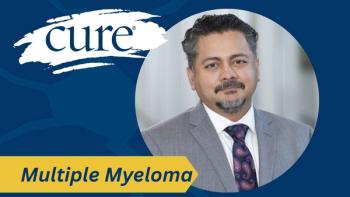
An Expert Discusses the Future of Multiple Myeloma Treatments
The future of multiple myeloma is heading toward combination therapies and CAR-T cell treatments, according to Dr. Betsy O'Donnell.
In the multiple myeloma landscape, therapies are often proven to be safe and effective in the relapsed and refractory setting before they make their way into the frontline setting via an investigation in clinical trials.
In an interview with OncLive®, CURE®’s sister publication, Dr. Betsy O’Donnell, a medical oncologist in the Multiple Myeloma Disease Center and director of Lifestyle Medicine at Massachusetts General Hospital (MGH), discussed these research efforts, and explains why the future in this disease space looks promising, thanks to the current research in CAR-T cell therapies and the use of combination therapies.
Transcription:
There’s a lot going on, obviously, in the relapsed/refractory myeloma setting and that’s where all of our novel therapies emerge from and march their way forward into our armamentarium. Certainly, things targeting BCMA are very exciting, and there are upcoming studies incorporating CAR-T cells in the upfront setting as well for high-risk patients. So, all of that is really exciting.
On a personal level, we’ll be leading a study of the combination similar to that used in the GRIFFIN study, however, we’ll be using ixazomib (Ninlaro), which is the oral proteosome inhibitor, in combination with lenalidomide (Revlimid), dexamethasone, and daratumumab (Darzalex) for transplant-ineligible patients. That is a trial that I think is exciting, because it offers the opportunity to have a mostly oral regimen for older patients.
And I think we, too, at MGH are soon to open a trial looking at carfilzomib (Kyprolis) in combination with lenalidomide, dexamethasone, and isatuximab-irfc (Sarclisa).
So, there are some great combinations out there and a lot of great work being done in the upfront setting.




